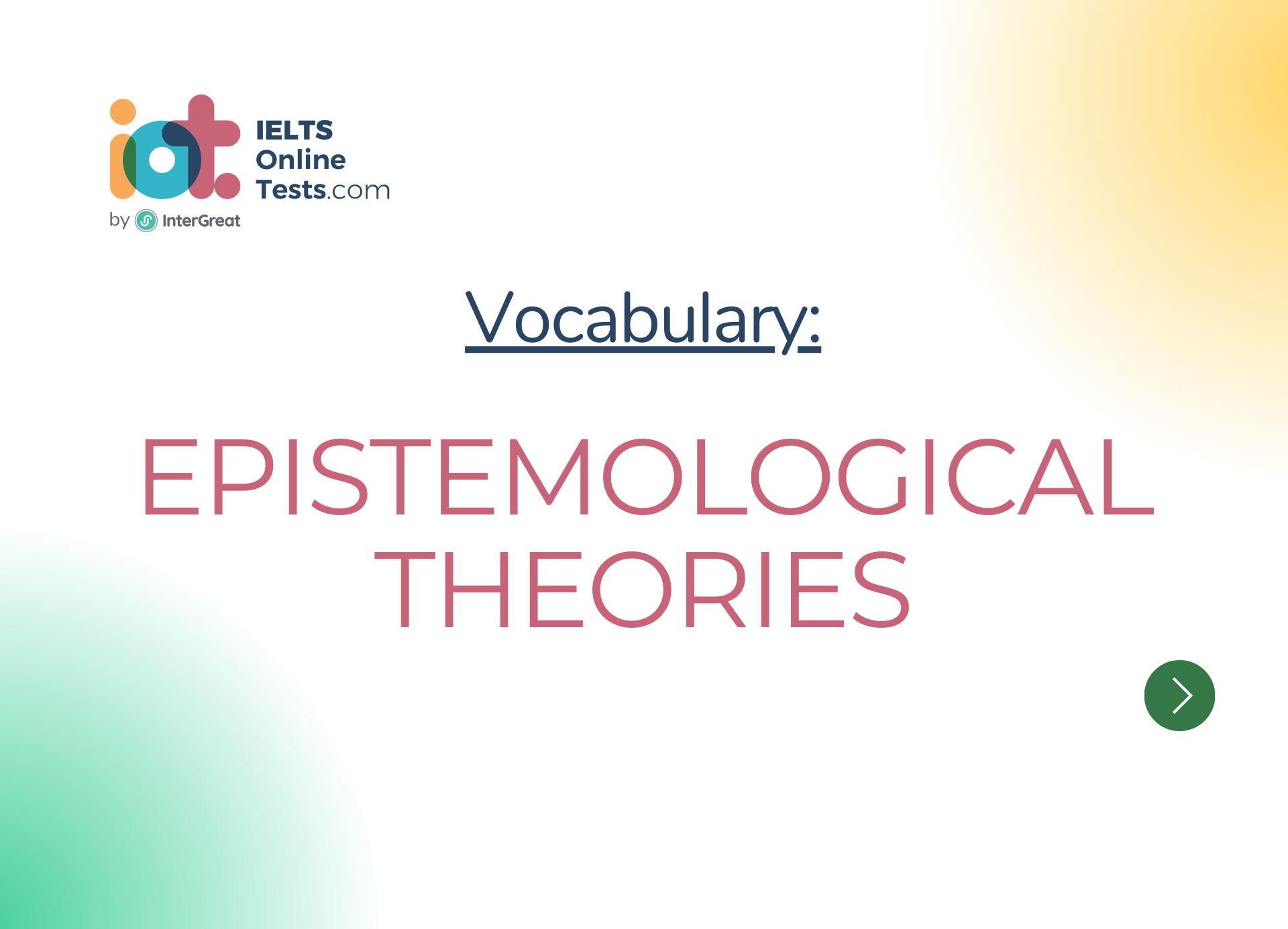
Epistemological theories
Below is a detailed list of vocabulary related to "Epistemological Theories" that can help you discuss different theories of knowledge and how we acquire knowledge in English, suitable for the IELTS band score range of 6.5-8.0:
Empiricism:
Definition: The theory that knowledge is primarily derived from sensory experience and observation of the external world.
Example: Empiricists argue that all ideas come from sensory impressions and experiences.
Rationalism:
Definition: The theory that knowledge is primarily gained through reason, logic, and innate mental faculties rather than sensory experiences.
Example: Rationalists believe that certain truths can be known a priori, without relying on empirical evidence.
Skepticism:
Definition: The philosophical position that calls for critical examination and doubt regarding the certainty of knowledge claims.
Example: Philosophical skeptics question the reliability of human senses and the ability to access objective truth.
Constructivism:
Definition: The theory that emphasizes the active role of the learner in constructing knowledge based on previous experiences and mental frameworks.
Example: In constructivist learning, students build understanding by connecting new information to their existing knowledge.
Intuitionism:
Definition: The belief that certain knowledge is self-evident and can be grasped through immediate intuition or introspection.
Example: Intuitionists argue that moral principles can be known directly through our intuitive sense of right and wrong.
Positivism:
Definition: The philosophical stance that emphasizes the use of scientific observation and empirical evidence to understand the world.
Example: Positivists seek to explain phenomena based on observable facts and reject speculation or metaphysics.
Coherentism:
Definition: The epistemological theory that asserts that knowledge is derived from the coherence and mutual support of beliefs within a system.
Example: Coherentists evaluate the truth of a belief by examining its consistency with other beliefs in the same belief system.
Foundationalism:
Definition: The theory that justifies knowledge based on foundational beliefs or basic axioms that serve as a secure starting point.
Example: Foundationalists argue that some beliefs are self-evident and do not require further justification.
Pragmatism:
Definition: A philosophical approach that evaluates the truth and value of beliefs based on their practical consequences and usefulness.
Example: Pragmatists prioritize what works in practice rather than focusing on abstract or theoretical principles.
Epistemological Relativism:
Definition: The position that asserts knowledge is relative to cultural, historical, or individual perspectives.
Example: Relativists argue that different cultures may have distinct ways of understanding and interpreting reality.
Epistemological Realism:
Definition: The view that knowledge represents an accurate reflection of an objective reality external to the knower.
Example: Realists believe that the external world exists independently of human perception or interpretation.
Epistemic Justification:
Definition: The process of providing adequate reasons or evidence to support a belief as true or reasonable.
Example: Epistemic justification is essential in determining the reliability and validity of knowledge claims.
Foundational Beliefs:
Definition: The fundamental beliefs or propositions upon which other knowledge claims are built.
Example: In Descartes' philosophy, the foundational belief "I think, therefore I am" serves as the basis for all knowledge.
A Priori Knowledge:
Definition: Knowledge that is independent of sensory experience and can be known purely through reason.
Example: Mathematical truths, such as 2 + 2 = 4, are considered a priori knowledge.
A Posteriori Knowledge:
Definition: Knowledge that is based on empirical evidence and obtained through sensory experience.
Example: Knowledge of the temperature outside requires a posteriori observation.
By familiarizing yourself with these epistemological theories and related vocabulary, you can demonstrate a sophisticated understanding of how we acquire knowledge and critically evaluate different perspectives, contributing to a higher band score in the IELTS exam. Good luck with your studies!




